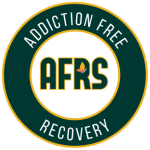In the journey of addiction recovery, finding solace in the present moment can be transformative. Mindfulness, a practice rooted in awareness and acceptance of the present, emerges as a powerful ally in this endeavor. As we delve into the role of mindfulness in addiction recovery, we uncover profound insights and strategies that pave the path toward healing and lasting sobriety.
Understanding Mindfulness in Addiction Recovery
At its core, mindfulness involves being fully present in the moment, observing thoughts and feelings without judgment. This practice cultivates self-awareness, allowing individuals to recognize triggers, cravings, and patterns of behavior associated with addiction. By acknowledging these experiences without attachment, individuals can gradually regain control over their actions and choices.
The Science Behind Mindfulness and Addiction Recovery
Scientific research has elucidated the neurobiological mechanisms underlying the efficacy of mindfulness in addiction recovery. Studies have shown that mindfulness practices can modulate brain regions associated with craving and impulsivity, promoting greater emotional regulation and self-control. Additionally, mindfulness-based interventions have been linked to reduced relapse rates and improved psychological well-being among individuals in recovery.
Exploring Mindfulness Techniques for Addiction Recovery
- Mindful Breathing: By focusing on the breath, individuals can anchor themselves in the present moment, cultivating a sense of calm and clarity amidst cravings or emotional turmoil.
- Body Scan Meditation: This practice involves systematically scanning the body for sensations, fostering a deeper connection between mind and body and enhancing self-awareness.
- Mindful Movement: Engaging in gentle movement practices such as yoga or tai chi encourages mindfulness and helps individuals develop greater physical and emotional resilience.
- R.A.I.N. Technique: Recognize, Accept, Investigate, Non-identification—a mindfulness-based approach to managing difficult emotions and cravings with compassion and curiosity.
Integrating Mindfulness into Treatment Programs
Leading addiction treatment centers are increasingly incorporating mindfulness-based interventions into their programs, recognizing the profound impact of these practices on recovery outcomes. By integrating mindfulness into individual therapy sessions, group counseling, and holistic wellness activities, treatment facilities empower individuals to develop essential coping skills and cultivate a deeper sense of self-awareness and resilience.
Addressing Common Challenges in Mindfulness Practice
While mindfulness offers numerous benefits in addiction recovery, individuals may encounter obstacles along the way. It’s essential to acknowledge and address these challenges proactively:
- Resistance to Change: Some individuals may initially resist mindfulness practices due to skepticism or discomfort with being present with their thoughts and emotions. Patient guidance and encouragement from therapists or peers can help alleviate this resistance.
- Overwhelm: The process of confronting suppressed emotions or facing cravings can feel overwhelming at times. Providing adequate support and teaching individuals to approach these experiences with self-compassion and gentleness is crucial.
- Maintaining Consistency: Like any skill, mindfulness requires consistent practice to yield meaningful results. Creating a supportive environment and incorporating mindfulness into daily routines can enhance adherence and long-term success.
FAQs About Mindfulness in Addiction Recovery
Can mindfulness help with cravings?
Yes, mindfulness techniques can help individuals observe cravings without acting on them, empowering them to make conscious choices aligned with their recovery goals.
Is mindfulness suitable for all types of addiction?
While mindfulness can benefit individuals recovering from various forms of addiction, personalized treatment plans tailored to individual needs are essential for optimal outcomes.
How long does it take to experience the benefits of mindfulness?
The timeline for experiencing benefits may vary among individuals, but consistent practice over time typically yields noticeable improvements in emotional regulation, stress reduction, and overall well-being.
Conclusion: Embracing the Journey of Recovery with Mindfulness
In the quest for lasting sobriety, the journey of addiction recovery is both challenging and transformative. Mindfulness serves as a guiding light, illuminating the path toward healing, self-discovery, and inner peace. By cultivating present-moment awareness and embracing each moment with compassion and acceptance, individuals in recovery can forge a new relationship with themselves and the world around them—one rooted in resilience, authenticity, and profound inner freedom.
As the landscape of addiction treatment continues to evolve, integrating mindfulness into recovery programs offers a beacon of hope for those navigating the complexities of addiction. Through mindfulness, individuals not only find refuge in the present moment but also discover the courage and strength to rewrite their stories and embrace a future filled with possibility and purpose.





















